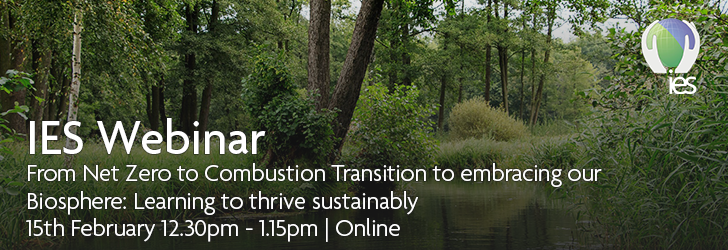Humanity has grown prosperous and numerous by burning and consuming the products of biological systems of the past and present. In doing so we have allowed the degredation of the environment which we share with other living things. We have now learned how to get much of what we need without causing such destruction but we are not all doing it yet. We must transition to embracing and stewarding our world instead of consuming it. To get there we must focus on the causes rather than the symptoms of our problems. The causes being our addiction to using combustion to give us power and our clearing of land to feed ourselves, while GHG emissions, climate change and biodiversity loss are symptoms of these activities.
This talk will set out concepts and principles building on the Combustion Transition FrameworkTM which introduces metrics and tools that can help us to plan and manage the transition more effectively than just carbon accounting. Examples will be presented of practical measures for the UK to accelerate our transition to net-zero and then on to thriving sustainably as part of our biosphere.
Our speaker

Prof. Simon Spooner is an environmental scientist applying scientific models combined with social, economic, political and regulatory methods to address the challenges that we face and help build better infrastructure systems. Over the last 30 years as a consultant with Atkins and before that Mott MacDonald he has had a role in solving many of these challenges such as the impact of our cities on river water quality, how to track threats like COVID19 through our water systems, how to incorporate nature-based solutions into our infrastructure and how to plan better responses to climate change. For this he has developed the combustion transition framework, an innovative approach to integrating GHG emissions reductions and land-use based regeneration of natural processes with a system of metrics and economic tools.
He has worked about half his time overseas, mostly in China, on major World Bank, EU and UK government projects in urban planning, energy systems and environmental policy. He is an honorary professor at Nottingham university in China and UK campuses and has written and edited a number of books on water and environmental management, regulation and adaption of European approaches to China for OECD, FWR, EU and Chinese publishers.


